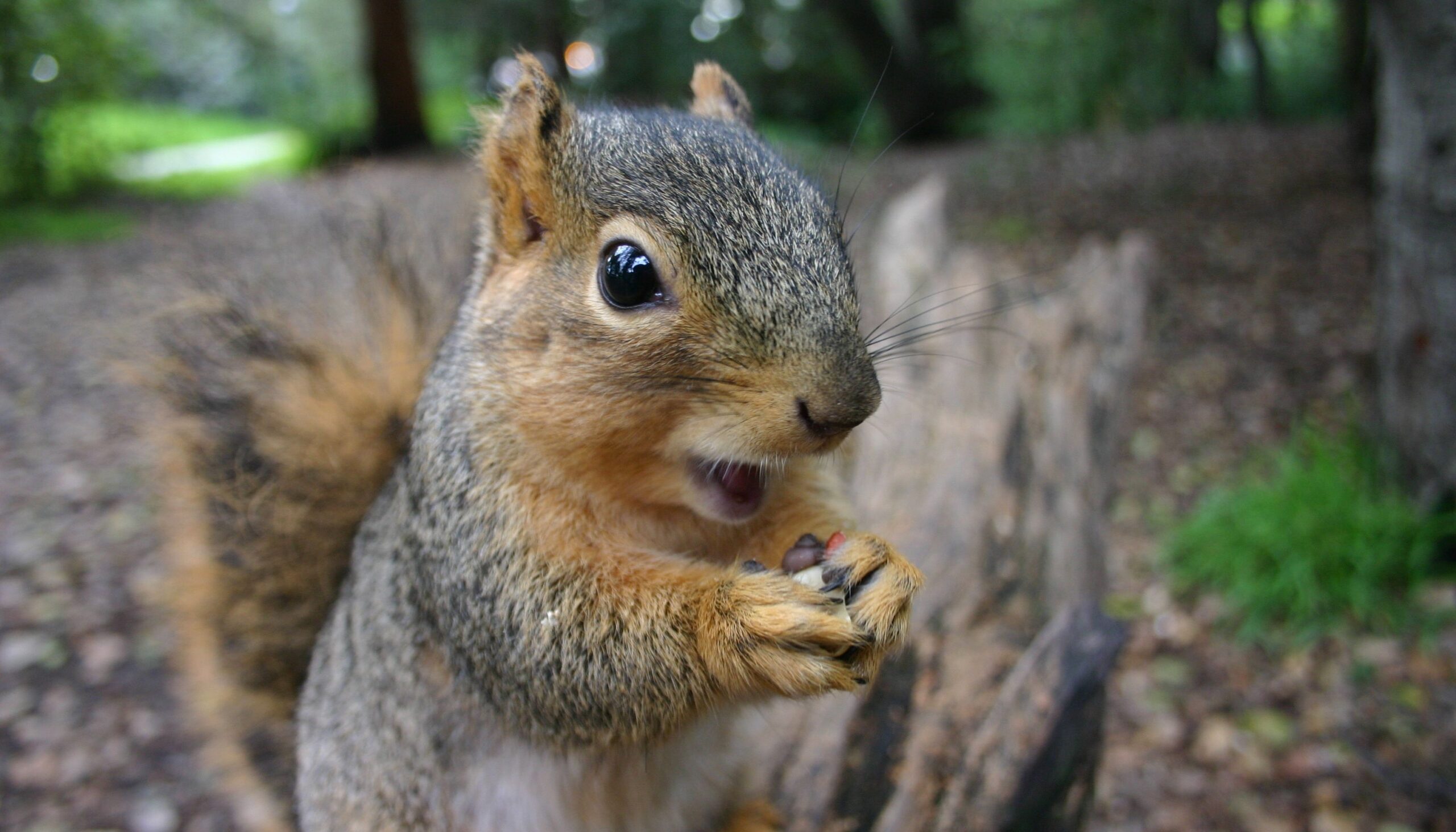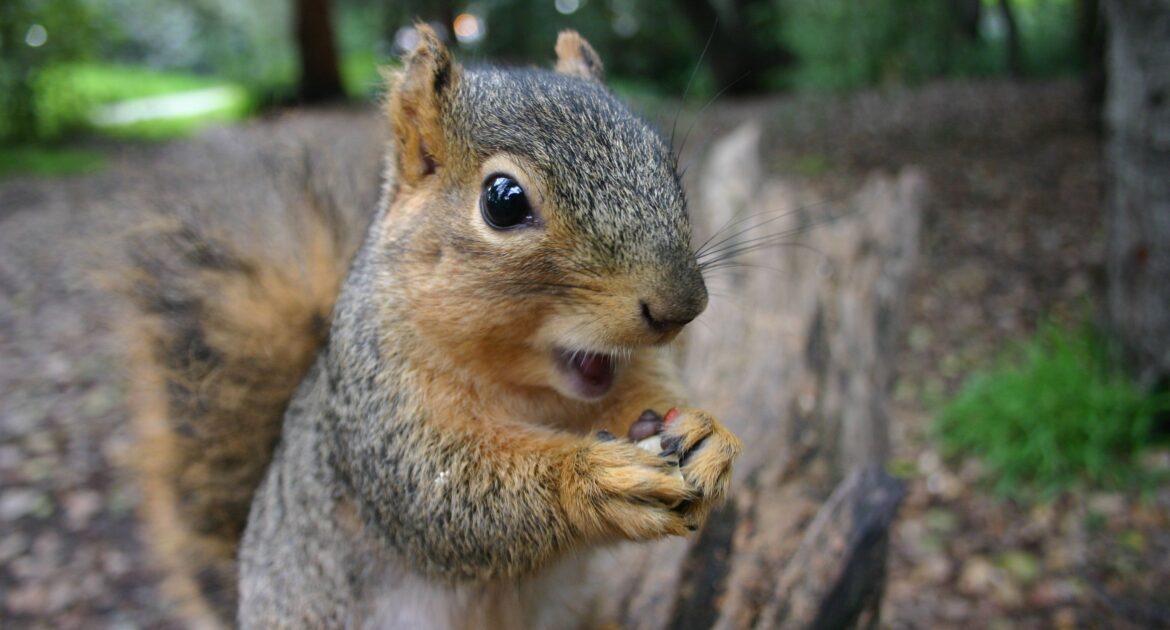With winter’s chill setting in, you might notice fewer squirrels scampering about, leading you to wonder where do squirrels go in winter. These small creatures are resourceful survivalists. Understanding how squirrels survive winter can help us appreciate their adaptability.
Unlike some animals that hibernate, squirrels remain active, relying on the food caches they’ve prepared during the warmer months. Their nests, often high in trees, offer protection from harsh conditions. But when it comes to what squirrels eat in the winter, their diet shifts to what they’ve stored—nuts, seeds, and anything else they can find in their natural habitat. Feeding them during this time can impact their instinctual behaviors, which is why experts recommend careful consideration of any human intervention.
This article aims to provide clear, concise guidance on the topic, ensuring you’re well-informed about these fascinating creatures and their winter habits. Our goal is to equip you with knowledge that highlights humane practices and respects the natural order, while also fostering a deeper understanding of the wildlife around us.
How Do Squirrels Survive in Winter
During winter, squirrels adopt a variety of strategies to endure the cold. Unlike hibernating animals, squirrels remain active throughout the season, albeit less so than in warmer months. Their activity levels drop significantly, focusing mainly on essential tasks such as foraging and nest maintenance. Understanding how squirrels survive winter involves knowing that they rely heavily on the food they store during the fall. Pre-winter preparation is crucial for them, as they gather and bury nuts and seeds, relying on these caches when other food sources are scarce.
The question of what squirrels eat in the winter is vital. While their diet primarily consists of nuts, seeds, and berries, these resources become limited when the ground is frozen. This scarcity is why they depend so much on their stored reserves. Occasionally, they might forage for fungi, tree bark, or even small insects to supplement their diet. It’s fascinating to observe how their resourcefulness and memory skills enable them to locate their hidden stashes, ensuring they don’t go hungry during these challenging months.
Their natural instincts drive them to find warmth and shelter, often turning to attic spaces or outbuildings for refuge. This search for shelter highlights why it’s important for homeowners to be mindful of possible entry points around their properties. Sealing gaps and maintaining structures can prevent unwanted intrusions while ensuring that squirrels using outdoor nests continue their natural patterns without human interference. At Skedaddle, we emphasize humane solutions that respect wildlife while protecting your home.
Benefits and Concerns of Feeding Squirrels
The idea of feeding squirrels might seem appealing, especially when you see them scampering around looking for food. However, there are factors to consider before deciding to assist them. One potential advantage is that supplemental feeding can help maintain their energy levels, offering a boost when their natural food supplies are low. For homeowners, this can be an enjoyable way to observe wildlife up close, creating opportunities for connection with nature right in your backyard.
On the flip side, feeding squirrels can disrupt their natural foraging behaviors and even lead to dependency on human-provided food. This dependency might cause them to stop gathering and storing food on their own, which could reduce their survival chances if the food supply from humans is inconsistent. Additionally, providing food can lead to increased squirrel populations in an area, possibly overwhelming the natural environment and causing additional issues for homeowners.
Health concerns also arise when feeding squirrels. Foods that aren’t naturally part of their diet may lead to nutritional imbalances or health problems. It’s crucial for homeowners to research and understand the dietary needs of squirrels if they choose to feed them. Providing inappropriate food can do more harm than good. At Skedaddle, we’re committed to educating the public on responsible wildlife practices that prioritize the well-being of animals and the integrity of the natural environment.
Natural Ways to Support Their Survival
For those looking to support local wildlife without directly feeding them, there are several natural methods to consider. Planting native trees and shrubs can provide squirrels with natural food sources and nesting materials. Nut-bearing trees, like oaks, hickories, and beeches, are excellent choices as they produce seeds that squirrels instinctively gather and store. These trees can also offer shelter from harsh weather conditions, giving squirrels a safe space to retreat.
Maintaining a healthy garden with diverse plants can attract insects and birds, creating a robust ecosystem that indirectly benefits squirrels. A garden full of life offers squirrels ample opportunities to forage and explore, much like they would in the wild. Keeping your yard free of harmful pesticides and chemicals ensures that the local wildlife can thrive without exposure to toxins that could harm them or their food sources.
Another way to support squirrels is by providing nesting materials like twigs, leaves, and grass. These materials can be placed in your yard, encouraging squirrels to build or reinforce their nests naturally. This approach respects their innate behaviors and allows them to maintain independence while still benefiting from human-provided resources. At Skedaddle, we advocate for methods that align with nature’s rhythms, ensuring that wildlife can flourish alongside human habitats.
Why Choose Skedaddle for Wildlife Control in St. Paul
When it becomes necessary to manage squirrels or other wildlife around your property, choosing a trusted and experienced service is crucial. At Skedaddle, we pride ourselves on our humane approach to wildlife control. Our focus is on providing solutions that respect both the animals and the homeowners. We understand the importance of maintaining the balance between enjoying nature’s presence and protecting your living space.
Our team of experts possesses extensive knowledge of animal behavior and uses non-invasive methods to address wildlife concerns. We offer comprehensive inspections to identify and secure potential entry points, ensuring that your home remains safe without causing harm to the animals. Our aim is to provide peace of mind through reliable and ethical practices that reflect our commitment to conservation and coexistence.
By partnering with Skedaddle, you gain access to resources and expertise that empower you to make informed decisions about wildlife interactions. Whether you’re seeking advice on preventing entry or need assistance with a current wildlife issue, our dedicated team is ready to help. Our services are designed to be effective and considerate, supporting both the natural world and your lifestyle.
Making the Right Decision for Your Home and Wildlife
Ultimately, the decision to feed squirrels during the cold months is personal and should be made with consideration of the potential impacts. While feeding can offer immediate benefits, it may also alter the natural dynamics of wildlife behavior and ecology. Understanding the habits and needs of squirrels can help homeowners make informed choices that align with their values and support the well-being of both the animals and the environment.
For those who wish to observe and enjoy squirrels without direct feeding, creating a wildlife-friendly space can provide a fulfilling and sustainable alternative. By fostering a healthy ecosystem, homeowners contribute to the broader environmental balance and ensure that squirrels can thrive naturally. These efforts reflect a commitment to harmony with nature, where both humans and animals can coexist peacefully and prosperously.
If you’re seeking guidance on managing wildlife interactions or have questions about how to support local ecosystems effectively, reach out to Skedaddle in Minnesota. Our expertise in humane wildlife control and passion for conservation equip us to assist you in making the best choices for your home and the wildlife that shares your space. Together, we can create environments where every creature—big or small—can find its place.




